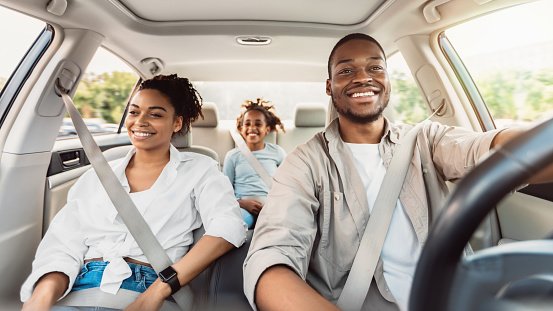

Why a Car is a Necessity, Not a Luxury, in Africa
In the fast-paced world we live in today, owning a car has evolved from being a luxury to an absolute necessity. The convenience, flexibility, and myriad of benefits that come with having your own vehicle make it an indispensable part of modern life. Africa’s economic landscape is undergoing a significant transformation. With rapid urbanization, a growing middle class, and an expanding digital economy, the continent is experiencing a surge in demand for personal transportation. This has led to a paradigm shift in the perception of cars, which are no longer seen as mere status symbols but as essential tools for navigating the complexities of modern African life.
Economic Opportunities and Job Accessibility:
Cars play a pivotal role in job accessibility and economic opportunities. Owning a vehicle enhances mobility, allowing individuals to reach workplaces that may be located in areas with inadequate public transportation. This, in turn, contributes to increased job prospects and economic growth.
Safety and Security:
Safety concerns on public transportation in certain areas can be a deterrent for many individuals. Having a personal vehicle provides a sense of security, especially for families and individuals traveling during non-peak hours or in less populated areas.
Empowering Entrepreneurship:
The entrepreneurial spirit is thriving in Africa, and owning a car is often a catalyst for small business owners. Whether it’s transporting goods, offering taxi services, or engaging in other entrepreneurial ventures, a car provides the means to start and grow businesses, fostering economic independence.
Family and Social Connectivity:
Africa is known for its strong sense of community and family ties. Having a car facilitates family visits and social engagements, strengthening these connections. It enables individuals to participate in community activities, celebrations, and events, contributing to a vibrant social life.
Versatility and Adaptability:
The versatility of a car allows for adapting to the diverse and sometimes unpredictable conditions in Africa. Whether it’s navigating challenging terrains, responding to sudden weather changes, or simply having the flexibility to change plans, owning a car offers adaptability in various situations.
Conclusion
In conclusion, cars are no longer a luxury in Africa but a necessity for many. They provide access to economic opportunities, education, healthcare, and other essential services. While challenges remain, the future of cars in Africa is promising. By embracing sustainable transportation solutions, African nations can ensure that cars continue to play a vital role in the continent’s economic and social development
Add a comment Cancel reply
Categories
- Car Gadgets (17)
- Car News (33)
- Car Reviews (43)
- Car Wars (7)
- Mechanicals (32)
- Uncategorized (2)
Recent Posts
About us

Popular Tags
Related posts


The New Car Smell: What you need to Know

The Drawbacks of Stretched Sedans: Cruising in Comfort or Compromising Convenience?








